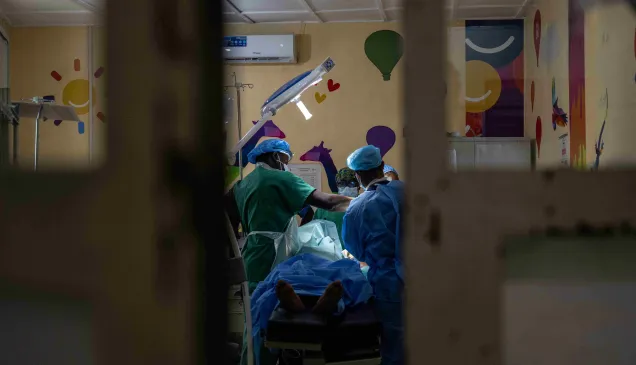Ethiopian Red Cross Society deputy secretary general, Engida Mandefro, addressing participants of the training. “The training would help participants to handle the duty of body management in a better and dignified way whenever there is a mass fatality in Ethiopia,” Engida noted.
Ethiopia: ICRC, ERCS conduct management of the dead training
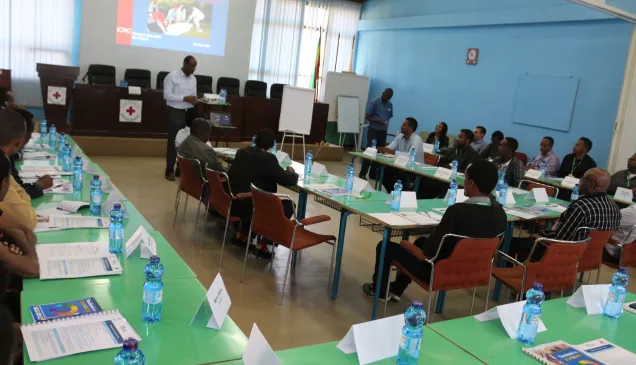
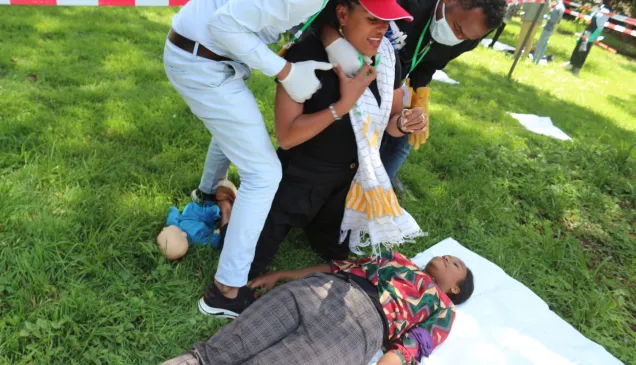
Participants at the training (acting as first responders) try to calm down relatives of the deceased.
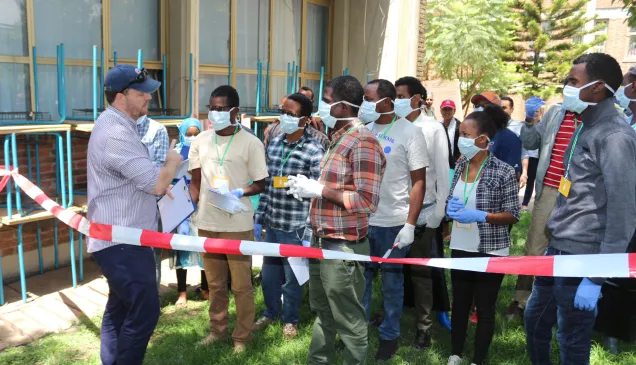
Here Neil Morris, the ICRC forensic specialist who conducted the training, gives instruction on how to do their jobs before beginning to handle the fatality during the simulation exercise. He explained, “The training is aimed at promoting the proper and dignified management of dead bodies and providing practical recommendations for non-specialists, including the collection of basic information, maximizing identification of recovered dead bodies, among others.”
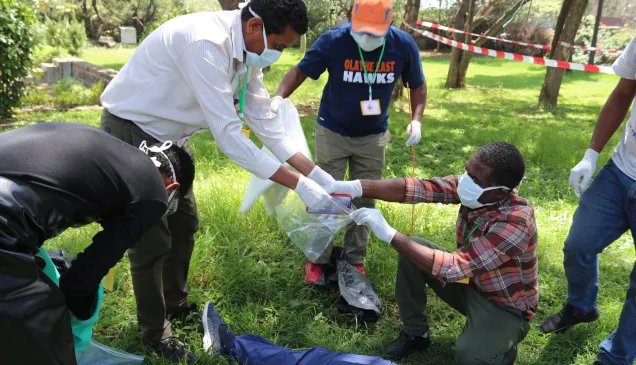
Trainees (acting as first responders) collect evidences from a crime scene and bodies.
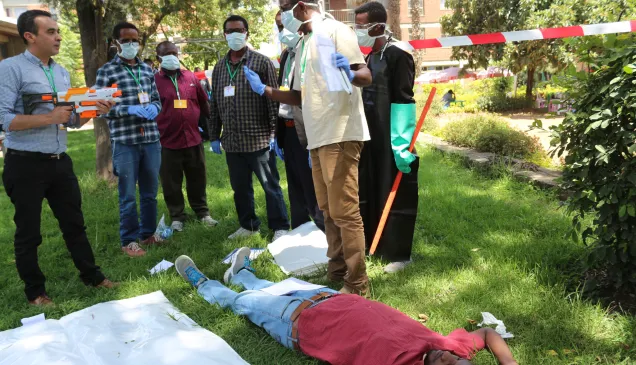
In this acted scene, an armed man asks the trainees to leave the scene at gun point while they try to calm him down by explaining what they are doing.
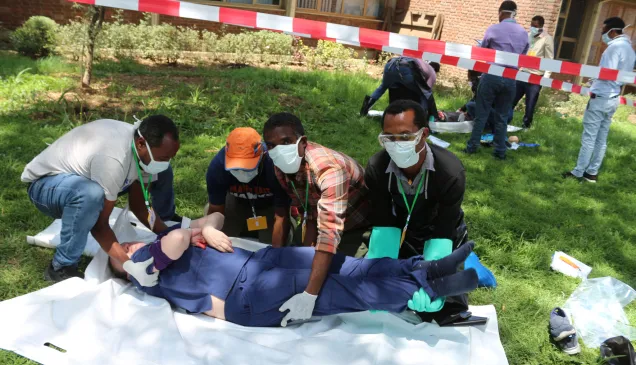
Participants practice wrapping up a body with maximum care.
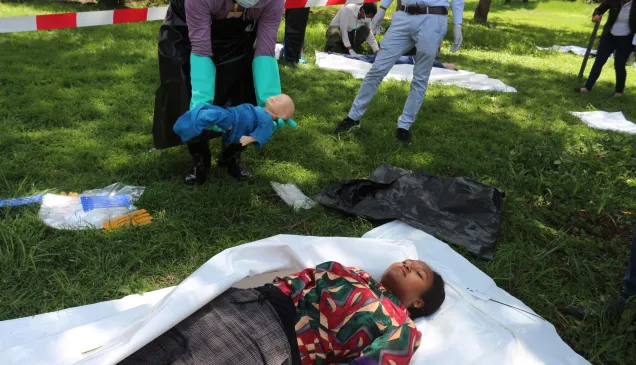
One of the participants picks up the body of a child found near the body of a woman.
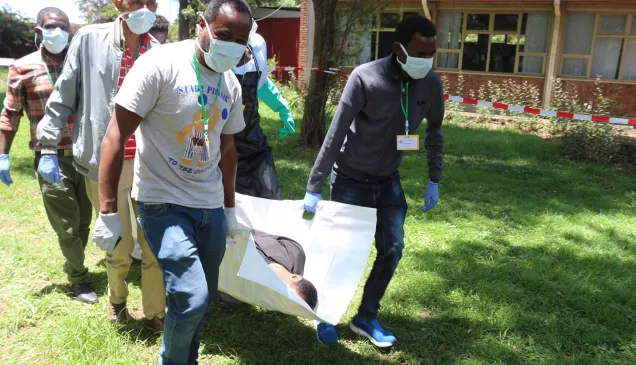
Participants transport a casualty from the scene during a simulation exercise.
Proper management of the dead is a key component of disaster response together with recovery and care of survivors, and supply of basic services. Red Cross staff and volunteers are among the first responders to disasters like the recent Ethiopian Airlines crash which claimed the lives of 157 people.
Witnessing the overwhelmed local emergency response services following this tragic event, the ICRC and the Ethiopian Red Cross Society (ERCS) took the initiative to conduct recently a two-day training on the management of dead bodies in Addis Ababa, Ethiopia.
The training, held in May 2019, brought together 29 staff and volunteers of the Ethiopian Red Cross Society (ERCS).
The training involved both theoretical and practical (simulation) sessions where the participants had to handle a scenario in which there were a number of fatalities.
Personal safety of the responder, body recovery and photography, ante and post-mortem data collection and international best practice in dealing with such situations were among the topics covered in the course of the training.
One of the participants, Mitku Gebrehana, is an ERCS staff. " I think the skills we acquired from the training will help us in handling the work of dead body management effectively".
Another ERCS employee, Solomon Negash, pointed out that one of greatest challenges in dead body management is establishing identification to a certain dead body. "What I learned from the training was that applying standard procedures in labeling dead bodies helps in forensic procedure and ease the identification,"


